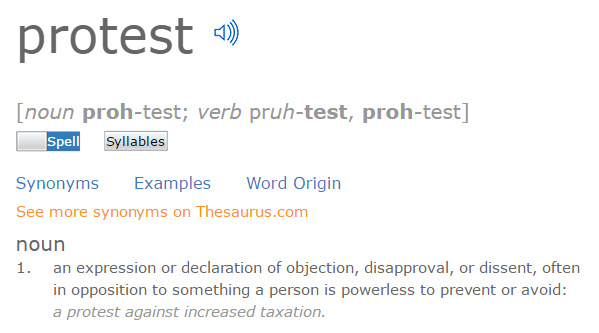Let me preface this by pointing out that I’ve been a registered Democrat since I turned 18.
I’m giving NaNoWriMo a rest for a moment to write about the election. Obviously, yesterday was an emotional day for pretty much everyone. The numbers looked good for Clinton, and then the numbers started to look bad. Then they started looking real bad. However, in the thick of the electoral mire, there is one set of numbers that gives me some heart:

That’s according to NPR.
If you want to skip the analysis and get straight to my feels, scroll down to the last section.
Yes, Clinton won the popular vote, though narrowly. I’ve been seeing a lot of comments about how Trump’s victory was the “will of the people,” but that it evidently not true. It was certainly the will of some of the people, and in this case the correct ones, but not all of them of even most of them. The electoral college gave Trump the victory, but that’s the way it goes. I actually don’t have an issue with that concept, though I know many who do, especially after the entertainment of the 2000 election. The electoral college serves a purpose, and I believe it to be an important one.
However, how did Clinton lose? Polls showed her up. The experts believed her to be ahead. Even members of Trump’s campaign staff believed him to be behind. It may take some time before we actually know the mathematical answer to this, but there are some guilty-looking culprits.
The Myth of the “Protest Vote”
I heard time and time again this cycle that “none of the options are any good. They’re all terrible. I just want to get new ones. Let’s end it with an asteroid. etc.” This rhetoric became especially rampant after Sanders lost the Democratic primary. Many voters were unable to vote for Trump, but also felt that they couldn’t vote for Clinton. Their decision? Voting third party or not voting at all. Many of my Millenial friends termed this a “protest vote” in order to catch the attention of the establishment. This, as it turned out, was the very definition of cutting off your nose to spite your face.
Let’s dig into this “protest vote” concept. Dictionary.com defines protest thusly:

Interestingly, the important part there is “often in opposition to something a person is powerless to prevent or avoid.” This is important because no voter is powerless in a democratic system. Sure, power is wielded by swaths of votes where individuals can feel like just another drop in the bucket. But to quote David Mitchell from Cloud Atlas, “My life amounts to no more than one drop in a limitless ocean. Yet what is any ocean, but a multitude of drops?” It doesn’t matter if a vote was razor thin or a landslide, every single vote matters. If you vote, you have wielded power.
More importantly, and with an immense amount of irony, the “protest vote” is actually more harmful to those that cast them than they are to the establishment. To understand this, I’ll need to explain the two-party system for a second. Having a two-party system actually has a highly moderating effect on the political landscape, despite how divisive it feels. The reason for this is actually pretty intuitive: if a party goes way too far to one end of the spectrum, it starts looking extreme and fewer people vote for it. When there are only two real choices, an overly radical candidate will usually be defeated by the more moderate opposition and the moderation of the landscape will stay fairly stable. So, the two primary candidates tend to exist in the middle of the spectrum, though with leanings one way or another.
Third party candidates, meanwhile, do not tend to exist in the middle. Primarily, this is because the middle is already occupied and represented by the two big parties, but also because third parties tend to focus more strongly on specific issues or voters. This may sound a little off, but how many times have you heard a libertarian friend say, “Ugh, both the Republicans and Democrats are just as bad.” From a third party perspective, both of the two major parties share more in common than they have differences.
So, when you lodge a “protest vote” for a third party candidate, you’re trying to say, “I hate both candidates, so I’m going to vote for this one over here that more closely aligns to what I think is important. That’ll send a message.” However, what you’re doing then is what’s known as the Spoiler Effect, IE you’re helping to ensure that of the two major party candidates, the one you dislike most will win. By protesting, you’re helping to get your least favorite candidate elected.
“Yeah, well, that’ll show ’em!” you may now be saying, but you’d be wrong. As I explained above, the two major parties don’t really drift too far from the middle of the spectrum. In four years, or eight, or sixteen, the party you were protesting will still be just as moderate. Conversely, you will have personally dealt with the policies of a party which is an anathema according to your values. The two parties will be little affected, but you will be greatly affected.
For those that decide to simply not vote, this is not any better. Voting is not a simple choice between two foods that you dislike. You cannot just go hungry today and decide to eat tomorrow. You will be subject to the policies of one of these candidates, whether you vote or not. It is mathematically improbable that you can’t find a way that one candidate is at least a little better than the other.
Social vs. Economic
One thing I’ve observed over the past twelve years and four presidential elections is the moral back flips that some people have to make in order to support a candidate who agrees with them economically, but not socially, or vice-versa. The biggest culprits here are the libertarians (sorry to single them out again) because they feel very strongly about personal freedoms in all areas of life, but feel forced to vote Republican on an economic platform despite the stringent social controls in their platform. In this way, I can sympathize with libertarians, because it’s tough to want an open market with an absolution of income tax, but have to support a candidate that also declares gay marriage illegal and is severely pro-life. It is almost a hypocrisy when Republican says, “I want less government regulations all around, oh, except for gay marriage.”
Another big group of voters affected by this are Evangelicals. Pro-life and traditional marriage are very important to them, yet so should be programs taking care of the poor and providing healthcare (in accordance with general Christian teachings). However, Evangelicals are notorious for voting their conscience, regardless of the economic outcome for them.
However, that’s how the two party system works. It provides two parties which must include positions on four separate ends of the political spectrum (two axes: economic, social). So, in every election, many voters are forced to choose which of their values are more important for them at that moment, and it does change. I may hate the idea of a pro-life candidate, but that candidate will do a lot for me economically. Or, vice-versa.
There isn’t a good solution to this dilemma, and I only bring it up as an interesting observation of a problem. If I could design the government from scratch, I might suggest that we vote the President in for economic and foreign affairs while we vote the Vice President in for social views. One office would be the brain of the country, the other its conscience. I don’t know if that’s even remotely feasible (it would require a clear delineation between social and economic laws and policies, and they are often murkier than that), but it would certainly be an interesting system. That might make a good SciFi setting.
The Power of Rurality
As a liberal city slicker myself, it’s easy to discount the rural voters of the country as know-nothing yokels who are uninformed and shouldn’t be allowed anywhere near a voting booth. This is a dangerous mindset, and one that I’ve had to purposefully force myself out of. A different perspective and set of values does not mean a bad or invalid one. Indeed, I think one of the biggest fallacies in our election cycle is the tired rhetoric about “American Values.” We are one of the least homogeneous nations in the world, so the idea that we can have a concrete set of shared values is almost laughable.
It’s easy for those in incredibly rich and diverse cultural areas (cities) to judge those in more homogeneous zones as racist psychopaths afraid of change. Conversely, rural residents tend to see urbanites as frail dandies out of touch with what it means to do honest labor. These are, of course, both completely invalid views.
There is a fair amount more to say on this issue, but I feel like the Cracked podcast hit it best with their episode on Trump. I really suggest giving that a listen.
My Takeaway
I am, as many are, disappointed. Not just that my candidate did not win, but also by how led astray I was by polls and analyses. Don’t be fooled, no one truly saw this coming. Sure, some had faith that Trump would win, but even conservative outlets believed his chances to be a long shot going into Tuesday.
Personally, it’s a strong set of emotions. The saddest part for me is that I will be fine. My family will be fine. We’re upper class white people with good jobs. But there are lots of people who are not those things, and that’s who I was voting to support. I was voting to support families too poor to put food on the table. I was voting to make sure that no one could be denied healthcare insurance. I was voting to make sure that women, minorities, immigrants, and foreigners were treated with dignity and respect.
I was voting for them, not for myself.
However, the world turns on, and the political sphere has not disintegrated. Indeed, it has just gotten even more fascinating. We’ll ride out these four years, and we will always strive to be the best we can.
In the meantime, I’ll find other ways to help those that are not as lucky as I.

